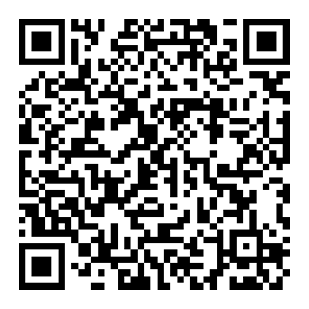院校文书20172018波士顿学院补充文书题目解析
必备干货!美国TOP100综合大学补充文书题目解析!
322017-2018
波士顿学院
补充文书题目解析
We would like to get a better sense of you. Please respond to one of the following prompts. (400word limit)
1. Human beings have a creative side that tends to shine mostwhen we are truly invested in the world around us. Describe a situation whenyou responded effectively to a particular need and found yourself at yourcreative best.
This prompt takes two common essayprompt topics — service and creativity — and squashes them together, allowingfor a much more nuanced, thoughtful essay.
Since this prompt has two componentsto it, you can choose which of the two you’d like to write from. If you focuson the “invested in the world” theme first, start by writing about a time whereyou noticed a societal need, and then describe how you engaged with thatproblem innovatively. On the other hand, if the “creative best” part speaks toyou more, you should brainstorm your creative tendencies and passions first,and then note how you used those to tackle a problem you were passionate about.
Another way to address this prompt isto write about how you integrated disparate parts of your identity to betteraddress a societal need. Is it physics and music? Basketball andeducation?Poetry and the environment? This is the perfect prompt to describeyour multifaceted identity.
|
Here are some examples:
You have a passion for computer science, as well as a passion for helping those with mental disabilities. You are able to land an internship with a local startup that focuses on building educational resources for those with disabilities, so you join their software team, excited to tackle your two greatest interests. However, you quickly learn that the job is incredibly challenging; not only are you the youngest person on your team, but you are also inexperienced in gauging how those with disabilities actually learn. You are overwhelmed when starting your job but eventually learn enough on the job to assist in creating an optimal geometry course module.
You love listening to hip-hop music, as well as helping younger students in their language arts skills. You notice that the elementary and middle school students you work with have zero interest in expanding their vocabulary through traditional methods, but are all in love with hip-hop music. To get the kids interested in vocabulary, you subsequently create an online platform that allows students to increase their vocabulary skills through listening to hip-hop, pinpointing certain lines that have vocabulary words that these students learn. |
2. Experience teaches us the importance of being reflectivewhen making major decisions. Share an example from a recent event when a leaderor an average person faced a difficult choice. What were the consequences ofthe decision? Would you have done the same?
This essay prompt gives you the rareopportunity to project beyond yourself to someone whom you admire (of course,you will eventually bring the essay back to yourself). Do you have a specificpolitician, celebrity, family member, or neighbor you admire who had to gothrough some tough difficulties? If so, detail their experiences.
It is key to remember that the personyou choose to write about will directly reflect back onto who you are. Forexample, if you choose to write about Elon Musk, chances are the admissionsofficer will assume that you are someone who cares about big ideas andinnovation; writing about Lebron James, however, will say something completelydifferent about you.
Another way to approach this prompt isthrough looking for an event or decision first. Think big, like the CubanMissile Crisis (the word “recent event” is purposefully very vague), orrelatively small, like a family decision to move to a new city. Think ofdecisions that someone like you could’ve made, but don’t feel limited by yourown age, gender, or race.
After describing the person and eventin your essay, talk about the consequences of said decision, being concise asto not detract too much from talking about yourself.
The final part is personal reflection:Does the decision reflect your own character, and why or why not? Feel free tobrag a little about talents and skills that you have, whether they be grit,leadership, ambition, humility, compassion, or others. If possible, talk abouta similar tough choice you’ve had to make in your own life, and explain why youwould or wouldn’t repeat that decision. Place yourself in a position of empathywith the person you are talking about, and make sure to understand his or herrationale before explaining yours.
You want to have enough backgroundinformation in your essay, making sure that the admissions officer reading ithas a firm contextual grasp of the situation.
|
Here are some examples of recent difficult decisions made by both famous and “ordinary” people:
John McCain flew from Arizona to Washington D.C. right after having brain surgery, going against his party by voting against repealing the Affordable Care Act. The vote and discussions stretched on for hours, and finally, at one in the morning, he dealt the final blow to seven years of Republican efforts. If accessible healthcare is something you are passionate about, you could talk about how you would do the same, having seen with your own eyes families becoming homeless because they could not afford medical payments. You could then tie this into your own future goal to work on public health issues in the federal government.
When asked during an interview with ABC’s “This Week” about his most difficult decision during his time in office, former President Barack Obama cited the deployment of 30,000 troops to Afghanistan, after promising to de-escalate the war in the Middle East and pull American troops out. You acknowledge that Obama was stuck in an incredibly difficult situation, but if you were president, you would’ve pushed relentlessly to bring American troops back home.
11-time NBA All-Star Chris Bosh was struck with blood clotting issues just as he was about to take control of an emerging Miami Heat team. Bosh desperately wanted to return to the basketball court to live out his greatest passions, but the medical staff urged him to not play. Eventually, the NBA ruled that his blood clots were career ending, so Bosh retired, knowing he could die from a blood clot incident. Now, Bosh enjoys valuable time with his family and pursues hobbies like computer programming, but will never play professional basketball again. You yourself are a varsity basketball player, and could not imagine a world in which you are unable to play basketball. Even so, if you were in Chris Bosh’s shoes, you know you would have to do the same — your family, religion, and goals to work in politics are more than enough reason to give up basketball to continue living.
Someone you know is thinking of changing his last name to his mom’s maiden name, due to having an abusive and absent father and wholly siding with his mother in family matters. However, he knows that he will be financially cut off from his family if he does so, as his father is the primary breadwinner. Growing up in an abusive family yourself, you know that you would do the same since being financially independent and secure is one of your main motivations in life. |
3. Boston College strives to provide an undergraduatelearning experience emphasizing the liberal arts, quality teaching, personalformation, and engagement of critical issues. If you had the opportunity tocreate your own college course, what enduring question or contemporary problemwould you address and why?
Here, Boston College is again forcingyou to think critically and introspectively at the same time: What are some ofthe great questions and problems that the world faces today, and what are thespecific problems and questions you want to tackle? Don’t feel forced to dig upthe greatest problem or the most looming question in this entire world, butrather find an issue, albeit a relatively major issue, and talk about why andhow you want to tackle it. This could be the problem of racism, incomeinequality, climate change, super bacterias, orartificial intelligence, as long as you have some kind of investment into theissue area.
Because you are creating a collegecourse in this essay, talk some more about what specific sub-areas of theproblem you would talk about through the semester. It would be a positive ifyou’ve had some experience dealing with the issue, but don’t be afraid totackle an issue you haven’t tangibly explored before, as long as you explainwhy you have chosen the topic you did and why you are invested in it. If youneed inspiration, check out online course catalogs for not only Boston College,but all other colleges, many of which are easily accessible.
|
Here are some examples:
Maybe your two passions lie in English and computer science. With English, you want to tackle how literature can answer some of the world’s most existential questions, and with computer science, you specifically want to talk about artificial intelligence as part of humanity’s future. Thus, you create a class called Literature and Artificial Intelligence: How Narratives can Inform us of a Looming Future. Maybe you talk about how growing up, your favorite books were R.U.R. and 2001: A Space Odyssey and how you always found yourself writing up science-fiction stories. In the computer science realm, you can talk about how you have always been coding and doing your independent side projects, but you want to navigate the computer science world in a much more humanistic way. You want to integrate these two fields to think about artificial intelligence outside of traditional methods, veering into imaginative narratives by authors from decades ago.
Maybe you believe that housing discrimination is one of the great problems America faces, especially in regards to creating disparate chasms in racial wealth. Growing up in an urban area, say New York City, you saw your neighborhoods essentially segregated, in which certain people could buy houses in your area and certain people couldn’t, but wasn’t actually conscious of the phenomenon and its consequences until recently. In high school, you worked with a local non-profit that advocated for fair housing. Thus, you want to address the problem from an academic lens: the history of housing discrimination, how it takes place in current government policy, and the best ways to subvert it. Thus, you name your class Housing Discrimination in New York. |
4. Jesuit education stresses the importance of the liberalarts and sciences, character formation, commitment to the common good, andliving a meaningful life. How do you think your personal goals and academicinterests will help you grow both intellectually and personally during college?
In this prompt, admissions officersare looking to both demystify what a Jesuit education is as well as allow youto advocate on behalf of your own values, fitting your personal and academicgoals into these Jesuit tenants. “Personal goals and academic interests” arerelatively easy topics to approach (just talk about yourself), but fitting thatinto the Jesuit ideals will be the challenge. The objective of this essay is tomove your goals and interests forward into the years you will spend in,possibly, a Jesuit college like BC.
The prompt lists four differentsubsections, so feel free to touch on one of them or all of them. However, justbe wary that if you choose to tackle a multitude of these ideas, your substanceand depth may take a sharp hit.
With “the importance of the liberalarts and sciences,” admissions officers want to see a passion for the widegamut of learning as not just a career preparatory tool, but a rigorous processto tackle the great problems our world faces. If you want to be a chemist andstudy chemistry, but also want to fully take advantage of a liberal artscurriculum and a more humanistic approach to chemistry, talk about how you arealso passionate about classes like Roman Religion and Introduction to AfricanDiaspora Studies, both of which BC offers.
With “character formation,” you couldtalk about a test of character that you’ve faced or a difficult circumstanceyou’ve had to overcome. Talk about how that trial influenced your personalgoals and academic interests, and how it will continue to do so in college.Maybe you want to major in biology at Boston College because of a close familymember that passed away from cancer — you want to fight for not only peoplelike her, but also low income patients in rural areas who may not have accessto a state-of-the-art medical facility.
With a “commitment to the commongood,” you can easily slide in work that you’ve done to benefit those aroundyou, whether it is through a volunteering organization, a personal project, oran experience away from home. This could then tie into what you want to studyand how you want to grow in college to keep pursuing a similar line of work. Ifyou are passionate about education, you could talk about how you want to pursueactivities at Boston College like the school’s branch of Project Sunshine, inwhich you work with kids suffering from medical challenges.
With “living a meaningful life,” thinkabout the values you want to live by. Are they the values espoused by yourreligion, a personal role model, or your own identity? For example, if you areactive in a mosque, talk about how you will join Boston College’s MuslimStudent Association to further involve yourself with the Muslim community. Feelfree to mention what you want to study and what you want to do after college,as long as you supplement these thoughts with why you want to do them, and whatmotivated you to do them. Fit these values into the mission of Boston College,and you will be good to go!
400-010-9551
www.wenshups.com
版权声明:以上内容为用户推荐收藏至Dreamgo网站,其内容(含文字、图片、视频、音频等)及知识版权均属用户或用户转发自的第三方网站,如涉嫌侵权,请通知copyright@dreamgo.com进行信息删除。如需查看信息来源,请点击“查看原文”。如需洽谈其它事宜,请联系info@dreamgo.com








